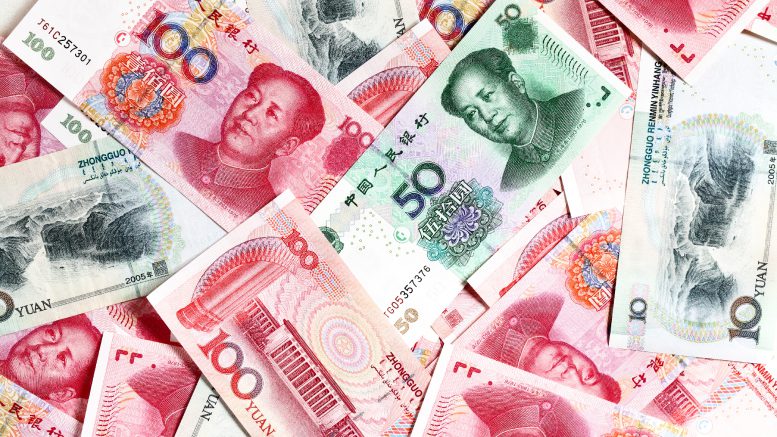The federal government has been getting tough with some Chinese companies, forcing some foreign owners of Canadian critical mineral projects to divest their holdings in the name of national security.
On a Wednesday list of forced divestitures were Sinomine Rare Metals Resources’s holdings in Vancouver-based Power Metals (CVE: PWM); Chengze Lithium International’s investment in Calgary-based Lithium Chile (CVE: LITH); and Zangge Mining Investment’s stake in Ultra Lithium (CVE: ULT) headquartered in Vancouver. Their projects concern lithium, caesium and tantalum.
“We will act decisively when investments threaten our national security and our critical minerals supply chains, both at home and abroad,” François-Philippe Champagne, Minister of Innovation, Science and Industry, said in a news release. “Foreign investments are subject to review for national security concerns, and certain types of investment—such as those in the critical minerals sectors—receive enhanced scrutiny.”
China responded by saying Canada was using national security as a pretext to block trade in a move that’s against international commerce rules.
“China urges Canada to stop the unreasonably targeting Chinese companies (in Canada) and provide (them) with a fair, impartial and non-discriminatory business environment,” Chinese foreign ministry spokesperson Zhao Lijian said on Wednesday.
Ottawa issued new guidelines for foreign investment in the critical minerals industry last month after announcing a $3.8 billion critical minerals strategy in April to help develop the mining and energy industries needed for a transition to green power in vehicles and electrical grids targeting net-zero emissions goals. China already controls large amounts of the rare earth elements that are among critical minerals needed for modern technology such as mobile phones, EV batteries and wind turbines.
Colin Hamilton, an analyst based in London for BMO Capital Markets, noted China supplies up to 80% of critical metals to the global market.
“Over the last year we have seen a slew of activity intended to bolster and diversify domestic supply chains for materials critical to the energy transition, with the United States, Canada and other major economies establishing a new partnership to this effect in June,” he wrote in a Wednesday research note.
Canada aims to assess the benefit of a foreign investment by considering that state’s power over the company, and the amount of competition and foreign ownership in the sector, according to the federal guidelines announced on Oct. 28 by Champagne and Natural Resources Minister Jonathan Wilkinson.
Agencies will also consider company governance and reporting standards, product destinations, and how much investment the company needs to stay competitive.
National security concerns about investments include the company’s size, the strategic value of its output and the amount of control the foreign state could exert, according to the guidelines.
Champagne said the list was based on security and intelligence scrutiny. Further foreign direct investment is encouraged from partners who share Canadian interests and values, he said.
“Increasing demand for these all-important minerals are presenting Canada with a generational economic opportunity,” the minister said. “We are committed to seizing that opportunity while delivering on the country’s ambitious climate goals.”
Spot prices of lithium, used in batteries for electric vehicles and other modern technology to reduce emissions causing climate change, have tripled in the last year because of supply shortages.
Companies such as tech giant Tesla are racing to secure supplies as traditional automakers are ramping up their electrical vehicle offerings. Tesla is building a lithium refinery in Texas and had considering buying mineral claims.
United States President Joe Biden has required domestic automakers to use non-Chinese minerals for their electric vehicles in order for consumers to qualify for government price subsidies, further spurring calls of critical mineral production in Western countries.
The issue of national control of resources has become more acute since the Russian invasion of Ukraine in February highlighted Europe’s dependence on imported energy. But it’s not the first time Ottawa has blocked Chinese investment.
In late 2020, the Canadian government rejected state-owned miner Shandong Gold Mining’s $150-million bid to buy TMAC Resources, now owned by Agnico Eagle (TSX: AEM; NYSE: AEM), and its Doris gold mine in Hope Bay, Nunavut, following a national security review.
The critical minerals strategy from April is to be updated by year’s end with categories for funding, Wilkinson said in an interview with The Northern Miner Oct. 25. The fine tuning will help future talks between Ottawa and the provinces and territories, such as Ontario’s Ring of Fire zone of critical minerals, he said.
“There will be money for infrastructure, money potentially for investment in projects themselves, for additional geological work,” Wilkinson said. “There will be a number of different pockets of money and we will draw out of those what is required for specific projects.”
Ottawa forces Chinese divestments in critical minerals companies
 Chinese yuan. Credit: Roman Sigaev/Adobe Stock
Chinese yuan. Credit: Roman Sigaev/Adobe Stock

Be the first to comment on "Ottawa forces Chinese divestments in critical minerals companies"